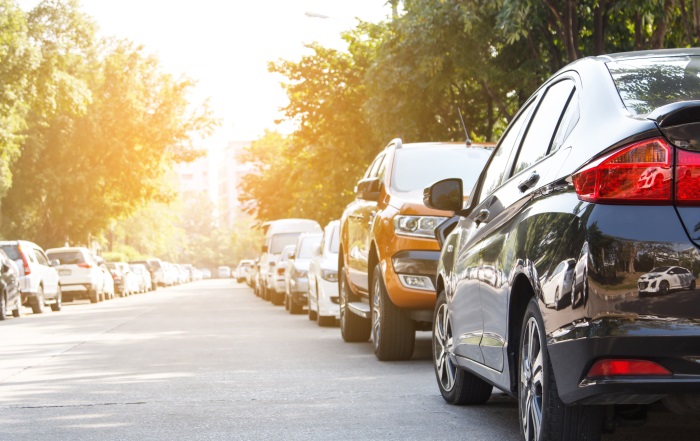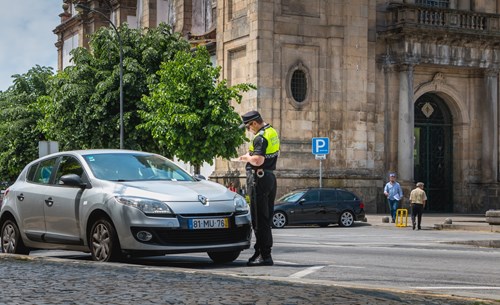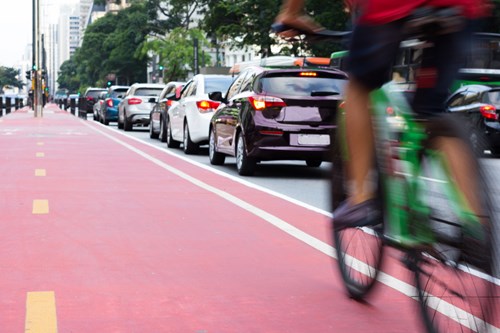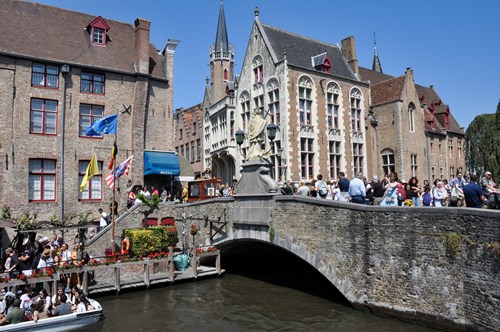
During the second edition of our Parking Network Virtual Conference, we welcomed parking experts from the London Borough of Barnet, York, and Bruges to discuss the impact that the Covid-19 pandemic has had on city center parking.
As restrictions are eased, it seems likely that city center parking will be on the front line of the industry’s recovery, and so we asked our panelists what adaptations they have made, what strategies they are putting in place, and whether we can expect radical change going forward. Watch the video below for the full discussion between Phil Hoare, Graham Titchener, and Koen Vansteenland and read on for a summary of their insights.
What Adaptations Have You Implemented So Far?
Leniency has been key for European cities as they try to support businesses and the public through the coronavirus pandemic. Parking permits have been extended and, whilst many cities continue to operate a parking hotline to handle severe obstruction and dangerous parking, enforcement has been scaled-back. Focusing on staff safety has been a key concern for cities, and responsibility to the public during a time of crisis has led many councils to re-evaluate the parking fines they issue to those who may be suffering financial hardship.
Free parking has been provided for health workers and key service providers, whilst parking lots have been transformed into Covid-19 testing facilities and enforcement officers have been redeployed into other council services, such as emergency food parcel distribution. These adaptations, when combined with lenient enforcement has resulted in a huge loss of parking revenue for local authorities. In Bruges, after two months without, parking enforcement has restarted, but the revenues they have lost are significant – the city went from issuing 6000-7000 parking tickets per month to none.

Has Covid-19 Given Us An Opportunity for Positive Change?
Although we knew that the work/life balance was increasingly uneven and commutes were becoming more extreme, it was difficult to imagine or implement an alternative. But Covid-19 has been a catalyst for that change.
As concerns around the safety of public transport persist, there is a small window for positive environmental change. Supporting home working will help reduce the environmental impact of commuting, but walking and cycling must be promoted as viable alternatives to driving. Whilst roads are quieter, cities have the opportunity to critically assess how its roads are used and engage in experimentation with initiatives such as pop-up cycle lanes, pedestrianization of parking spaces, and micromobility programs that encourage commuters to park outside of the city center.

People are nervous about how to safely return to “normality”. Careful thought needs to be given to how cities will accommodate social distancing, and how it will do so in a way that puts people at ease. Cities need to consider how on-street parking spaces can be used to extend pavements, making them suitable for social distancing and making room for queues outside businesses. There is also the opportunity to introduce parking reservations outside certain stores, such as pharmacies so that vulnerable people can rest assured that they will be able to park and access their prescriptions with minimal contact.
How Will You Manage the Bounce-Back After Lockdown?
Going forward we need to presume that people are in a more precarious financial situation and make allowances for this. So, in the London Borough of Barnet, they are evaluating how parking passes can be issued to residents and businesses on a monthly or quarterly basis, rather than annually. Council services also need to work together to offer a full package of support to businesses, combining business rate holidays with reduced parking fees. And a light-touch will be required when it comes to enforcement, perhaps by offering broader timescales for people to pay their tickets.
Will It Be Difficult to Balance Safety and Revenue Requirements

Social distancing, hand sanitization, and PPE requirements will be a necessity for enforcement and a risk-based approach will need to be adopted to ensure that patrols avoid areas with a high density of pedestrians.
Before we reintroduce the three main sources of parking revenue – permits, penalty charge notices, and parking tickets we need to consider what we want to encourage the public to do. Should we try to increase cycling and public transport, and therefore raise parking prices? Or do we want to encourage people to drive and park again, and therefore lower parking prices? Or perhaps it is possible to encourage people to park off-street, and on-street parking can be transformed for pedestrians and cyclists. There is a lot to consider, but it will be time to jump in soon before the vacuum of direction and leadership makes things unsafe for the public.
Have You Begun Planning Your Recovery Strategy?
Recovery strategy will need to follow government guidance, which is evolving on a daily basis, and parking services should be restored in line with the easing of restrictions by the central government. That said, national policy can’t fit all circumstances, and so it is the responsibility of local governments to implement advice as close to the guidelines as possible.
Going forward, cities will need to think carefully about how parking demand is managed in a more balanced way. Councils need to have a listening agenda to understand how recovery will work for retail and tourism because the recovery of parking is just a small piece of the puzzle.

In Bruges, a city that welcomed 8.5 million tourists in 2019, the parking recovery strategy goes hand in hand with tourism. Shops that have reopened have seen low footfall that cannot support their overhead costs. Guidance needs to be given to businesses and communicated to the public to reassure them that their safety can be guaranteed when they return to our city centers for work and leisure.
What Will Be the Primary Changes to Council Parking In the Future?

Where grants have been issued to local councils, such as York’s, smart city initiatives can be developed and technologies that enable contactless payment and barrierless parking can be introduced. That said, even with government funding, the loss of revenue in parking may cause delays in projects.
Whilst the government looks to make more money, councils may need to consider a more holistic approach that focuses on the wellbeing of its residents and businesses. As automation increases, parking revenue cannot go on indefinitely, and so councils need to consider how to adapt. Looking away from the bottom line and emerging from silos can give a fresh perspective on how to create town center vitality and bring in new revenue streams.





